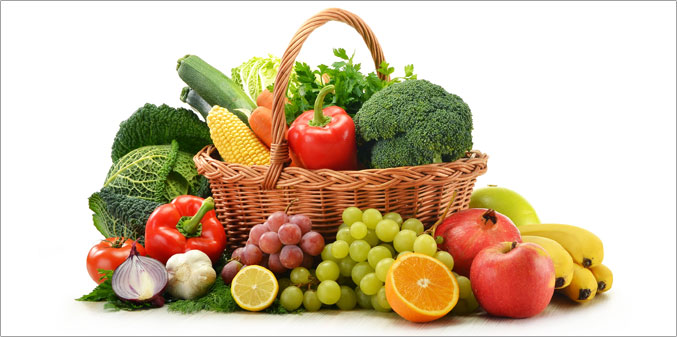5 Essential Nutrients that are Important for a Vegetarian Diet
According to various studies, vegetarian diet can help prevent obesity, heart disease and diabetes. Typically, a varied diet contains less saturated fat and more folate, fiber and antioxidants. Discussed below are 5 essential nutrients that should be part of any balanced vegetarian diet.
Protein
Whether you are a vegetarian or a non-vegetarian, protein is a definite part of your diet. Those prefer to go for a meatless diet can get their daily value of protein from the following food sources:
- Beans, lentils, pulses and peas
- Soy products that have been fermented like tempeh, miso and natto
- Free range eggs along with raw milk, cheese and yogurt and nut milks.
However, it is essential to keep away from pseudo meats or fake protein-based foods, as they are highly processed. Phytic acid found in these soy products are a hindrance in the absorption of iron and zinc. They can also cause enlargement of organs like thyroid gland and pancreas, and an increased release of fatty acids in the liver.
Iron and Zinc
Zinc and iron are essential for your health as they boost the immune system, maintain a healthy cellular metabolism and help in healing wounds and keep the blood healthy. Zinc is also required for cell division, protein and DNA synthesis. They can be obtained from the foods sources given below:
- Dark green leafy vegetables like kale, spinach, cabbage
- Cruciferous veggies like collards and broccoli
- Nuts like cashews and almonds and various seeds
- Cooked and sprouted beans, lentils, legumes and peas
- Fresh and dried fruits like apricots, raisins and dates
- Date syrup and molasses
- Whole grains and whole grain flours
Calcium
One of the 5 essential nutrients that the body needs is calcium. It is required to help muscles and blood vessels contract and expand, to keep the bones and teeth strong and healthy and boost the function of nervous system. Foods rich in calcium include:
- Dark greens: Chinese cabbage, broccoli and kale
- Sea veggies: wakame, arame, dulse, hijiki, and kelp
- Dairy products
Vitamin B 12
Vegetarians can usually obtain Vitamin B 12 from dairy and eggs but those who take a pure vegetarian diet without dairy or eggs will need to take the a B complex supplement containing at least 1.6 microgram of B12 to meet the daily needs of an adult.
Essential Fatty Acids
It is vital to avoid saturated and trans fats that are bad for your health, however the good fats or essential fatty acid are significant for the body help it absorb important vitamins A, D, E and K that energize you, regulate cholesterol and many other conditions like heart health. The foods that contain plenty of essential fatty acids are:
- Olive oil
- Sesame oil
- Raw and clarified butter
- Coconut oil: a saturated vegetable oil that has proven to be beneficial in the diet
- Omega-3 oils like walnut, flax and hemp oils

